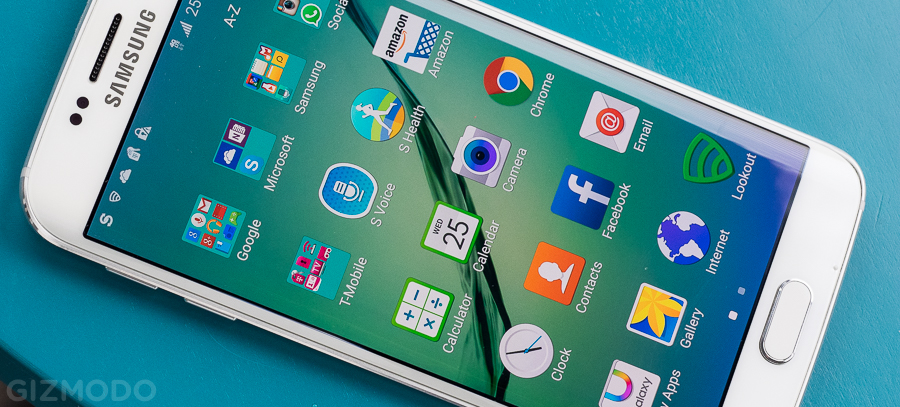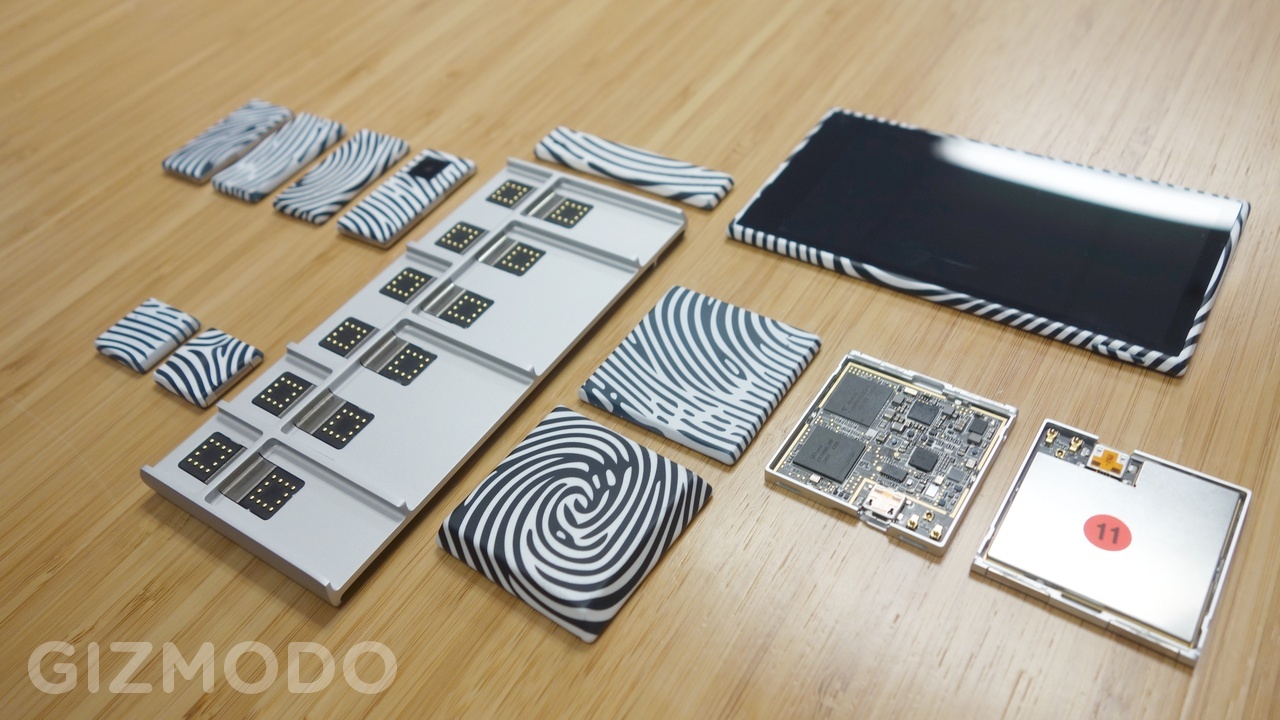Today, Google announced its very own wireless network in the US. Just $US20 a month for unlimited call and texts, plus $US10 per gigabyte of data. No contracts or termination fees. Google will even refund your unused megabytes. Sounds awesome. So what’s the catch already?
The catch is that if Google becomes a cell carrier, it will wield more power than ever before. It won’t have to bow to Verizon or AT&T. That could free up Google to do some wonderful things — but it’s also a little scary. We lay out the pros and cons for you.
Pro: Google could end bloatware

When you buy an Android smartphone from a cellular carrier, you can guarantee it will come with apps you don’t want or need. Terrible apps that try to duplicate functionality you already get free from Google (who would pick VZ Navigator over Google Maps?). Worse, you can’t even delete them. Why do they exist? Because cell carriers and hardware makers feel the need to pimp their own brand, and they have got all the leverage.
Sure, Google and partners sell some unadulterated phones, but can most people afford to buy them? Probably not, if they’re also buying service from AT&T and Verizon. If you know you’re going to stick with a carrier, it makes senseto get that two-year contract extension, get your phone for the subsidized price of $US200, $US100, or even free on contract, and deal with the bloat. You get more phone choices that way, too.
But if you’re buying your service from Google — for cheap! — you might be able to justify buying a pure, bloat-free experience.
Con: Google could lock you into its ecosystem and make it hard to leave
I already use Gmail, Google Calendar, Google Drive, Google’s Chrome browser, Google Maps, Google Voice, and any number of other Google services to make it through the day. Perhaps you do too. Now imagine you’re using those on an Android phone running on Google’s network. Imagine the synergies you get, or that Google might devise to keep you there. Imagine when beautiful new devices arrive that only work with Google services. Like the way the Apple Watch only works with an iPhone.
I’m not saying lock-in is the worst (it’s awesome when things work together!) but it can lead to less meaningful competition if you’re not careful.
Pro: Google could give us way more interesting phone choices

Look at your smartphone. It’s a smooth touchscreen slab with rounded corners, right? It’s probably got a screen between 4.3 inches and 5.7 inches, has a battery that lasts barely over a day with heavy use, and is more or less the same as every other phone on the market. Why? Because US cellular carriers tell manufacturers what to build based on what they think the majority of consumers will buy. That’s one of the reasons why we get the same barely distinguishable devices year after year, with a few new gimmicks like curved screens to attract the eye here and there. Manufacturers have some say, but carriers control much of the market.
It doesn’t have to be this way. Phones could be thicker, with way more battery life. They could actually fit normal-sized hands. They could have physical keyboards again. In other words, they could meet your needs instead of catering to the least common denominator. Google knows this, which is why it’s building a modular smartphone called Project Ara. You can just build the phone you want, out of interoperable hardware modules.
Which means Ara is a phone that cuts into cellular providers’ profits, by reducing the demand for new phones. After all, you can just buy a new Ara module instead of a whole new phone. Yeah, it’s a tough sell. But if you’re willing to pay full price for your phones because you know you’re getting a good deal on Google service, you’re incentivizing cell phone manufacturers to compete for your money — rather than carrier subsidies.
Another Pro: Google could get rid of annoying dead zones, and help the sorry state of broadband in the US
Can you hear me now? That’s a good question, and one we seem to keep asking no matter how fast our cellular connections get. That’s because of all the dead zones where cellular signals don’t work particularly well. There are lots of reasons for that. Traditionally, cell towers have to be spaced out to avoid interference, it’s a major process to install new towers, etc — but Google may have a fix. Project Fi will (allegedly) seamlessly hop between T-Mobile LTE, Sprint LTE, and pre-vetted public Wi-Fi access points to make sure you’re always connected.
We’ll have to see that to believe it, because public Wi-Fi can be pretty shitty, as you’ll know if you’ve ever tried to surf from Starbucks on a busy day! But it’s getting better. Cities are rolling out new, better Wi-Fi hotspots to make themselves more attractive.

And hey, Google has deep pockets. Maybe the company will set up its own new Wi-Fi access points with a nice Google Fiber backbone. It’d sure be easier than convincing the existing cell carriers to let ’em share their towers and finding new wireless spectrum.
Plus, the United States is practically a third-world country when it comes to broadband access. Google Fiber sounds like an awesome fix. But again, that costs money and takes lots of negotiation, which might explain why it’s taking so damn long for Google Fiber to come to my hometown of San Jose.
But again, what if Google just set up a Google Fiber backbone to feed a whole bunch of Google Wi-Fi access points for phones? Smartphones are rapidly becoming the primary computer for many people, and Project Fi includes free tethering if you want to route that connection to your laptop or tablet as well. Google would still need to figure out a way to improve speeds in rural communities, but perhaps that’s a job for balloons.
Con: Google could become one of the very giants it’s trying to dethrone
This situation is only possible because AT&T and Verizon have become powerful, and Sprint and T-Mobile are weak by comparison. The weaker players are uniting with Google to balance the battlefield. But if Google becomes a real telecom player, rolling out its own network (instead of just piggybacking on Sprint and T-Mobile) with Google Fiber as support, it could become even more powerful than AT&T and Verizon are now.
Google wouldn’t just own the pipes, it would control the devices that connect to them AND the software that runs on those devices even more thoroughly than AT&T and Verizon do now. If enough users sign up and get locked in, Google could dictate terms with even more authority than the big telcos. We’ve already seen Google successfully convince the US Federal Trade Commission to shut an investigation down.
We’re years away from Google dethroning the likes of AT&T and Verizon, of course. We don’t even know how well Project Fi works right now. But as you’re considering how wonderful it would be to have Google cell service, these are some things to think about.
Pro: Google could anticipate your every need based on your traffic and activity
With Google Now built into phones, tablets, smartwatches and (maybe) headgear, the company wants to give you a virtual assistant that anticipates your every need. What better way to do that than with direct access to all your mobile internet traffic, even if you don’t use the Chrome browser or Google search? Not to mention the ability to triangulate your position from cellular towers and Wi-Fi access points, even when your GPS isn’t active? Sounds pretty good, right?
OH WAIT.
Con: Google could track your every move and sell that to advertisers, or worse
OK, maybe privacy is dead. Maybe you really DO want Google to anticipate your needs. And maybe you trust Google with your data more than you trust cellular carriers. I don’t blame you there. But it’s still a little chilling to think that Google would have all that data — a company that definitely has the resources and interest in processing it. Google’s got so much of our data already, and while it usually seems to be acting responsibly, it’s hard to know for sure. At the end of the day, Google’s a business, one where advertising pays the bills.
